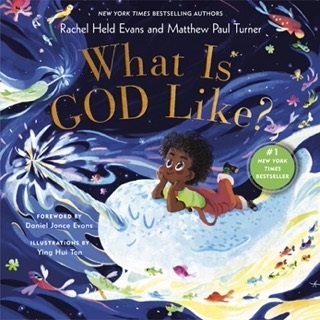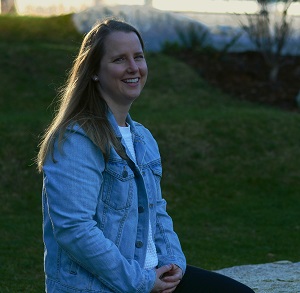
Creating Conversation is a weekly editorial, curated by the Centre for Missional Leadership (CML), and gives opportunity for people to speak about issues they believe are vital for the church in Vancouver.
One of the goals of this weekly article is to spark dialogue – and action. We invite you to join the dialogue here on the Church for Vancouver website.
We also invite you to use the article as a discussion starter with your small group, church staff, friends and your neighbours. Thanks for participating in the conversation!
At a family wedding recently, I was chatting with my uncle who is faithful lay leader at a mainline congregation in the prairies. His congregation is dealing with the many of the same problems we deal with out here on the west coast: greying members, declining attendance and deficit budgets.
We discussed some of the potential ways forward for his church’s leadership, and some of the dead ends they have faced; it is a rocky path forward for the congregation.
Knowing that I work for the Centre for Missional Leadership, and make my livelihood educating and equipping leaders about missional theology, my uncle finally asked “But what is the definition of missional?”
Defining missional?
Uh-oh. For what should be a simple question, the answer can be rather complicated. In the moment, chatting with my uncle, I think I managed to articulate an adequate definition. In any case, I avoided using Latin terms, I’m pretty sure I didn’t say the word hermeneutic, and I definitely didn’t start quoting Karl Barth, even though I desperately wanted to.
This casual conversation at a family event reminded me that as I am in the profession of missional leadership, I can use a lot of complicated words1 to describe what it means to have a missional God. It made me wonder if I am creating more confusion, rather than creating conversations.
 Since the wedding, I have been searching for clearer explanations for missional. Recently, I came across an explanation of a missional God that was clear enough for children to understand. In fact, it is meant for children.
Since the wedding, I have been searching for clearer explanations for missional. Recently, I came across an explanation of a missional God that was clear enough for children to understand. In fact, it is meant for children.
Last year, the late Rachel Held Evans had a children’s book published posthumously, compiled and completed by her friend Matthew Paul Turner.
What is God Like?2 is a children’s book, beautifully illustrated by Ying Hui Tan, that helps the reader ponder the big and complicated question of what God is like. From God being like an eagle to being a gardener, in the book, we are reminded that God makes us feel safe, brave and loved.
In the book there are a couples of lines which I think illustrates what it means for God to be at work in the world:
- God is like an artist, creative and unpredictable, always busy making and remaking everything brilliant and new.
- God is like a rainbow, vivid and full of colour, a dazzling reminder of promise and hope for all people after a storm.
So what?
While these definitions don’t reference anything from Newbigin, Bosch or Guder, from these beautiful, simple lines, it makes it easier for me to explain missional, and a missional God at work in the world.
This, in turn leads to the questions of, ‘so what?’
- So, what is the creative and unpredictable work that God is doing in the world? And how do we join in with making everything brilliant and new?
- So, what does this promise of hope look like for people in the world? And how do we participate with what God is already at work on in the world?
Getting to these so what questions can help us to imagine what being a missional leader looks like. When we can answer the so what, then we can create conversation within our congregations and, perhaps more importantly, engaging our wider community. If understanding ‘missional’ can be confusing for people who have spent their whole lives in the church, how do we create conversations with others who are unfamiliar with the church altogether?
Of course there is lots to worry about with church these days – our aging population, the lack of people returning to in person worship, consistent budget deficits, frequently vacant pulpits.
Yet, when I think about how the promise of hope is being lived out in local congregations, or the creative and unpredictable work God is doing in the Lower Mainland, issues such as who is refining church leadership structures, reforming their religious institutions or gathering the most resources are not what come to mind.
While these tasks can take up a lot of time and energy, they are generally out of our control. While some congregations might excel at these tasks, being missional is not about perfecting the business of church management.
Missional stories
Taking a note from a children’s book, being missional is simply about joining in with God’s creative work in the world and leading people towards lives that look more Christ-like.
The missional stories I want to hear more of are from those congregations whose members are eating with those who Jesus ate with, caring for those who Jesus cared for and being in community with those who Jesus was in community with.
The missional stories I want to hear more of are from:
- the congregations in New Westminster who are feeding hundreds of people with food hampers each week
- the communities in downtown Vancouver who are sharing meals and life with those who live on the margins
- the gatherings in Richmond which are including those who are most isolated and alone
As our congregations and communities navigate this dynamic, liminal time, what is the creative and unpredictable work that God is doing in the world? And how do we join in with making everything brilliant and new? It might not lead us directly to a balanced budget and increased attendance, but it will help remind us of God’s promise and hope for all people after a storm and bring us a little bit closer to knowing what God is like.

Andrea Perrett
Please share your story about God’s work in the world in the comments!
Andrea Perrett is an Associate in New Witnessing Communities with the Centre for Missional Leadership at St. Andrew’s Hall. She is the Director of Cyclical Vancouver, a local church planting network.
1 And footnotes.
2 Rachel Held Evans and Matthew Paul Turner, What is God Like? New York; Convergence Books, 2021.

St. Bart’s Anglican Church in Gibsons (Parish of St. Aidan and St. Bartholomew) is a small congregation that runs one of the four major food banks on the Sunshine Coast. The congregation has also begun a community lunch program – thanks in part to a government grant to bring the church kitchen up to standard.
We are also part of a community dinner program that sees free meals provided to Sunshine Coast residents at Christmas, Easter and Thanksgiving. This meal is supported by several faith groups in the community and coordinated by my fellow pastoral deacon, Kenan MacKenzie.
Being missional means reaching out to the community, and trusting God to do the things that touch people’s lives.